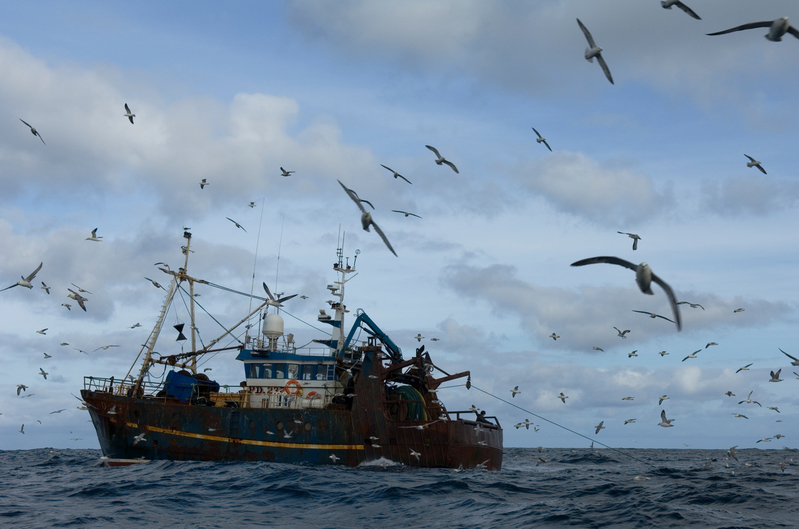Atlantische Oceaan / Noordzee

Seagulls Feed on By-catch From Trawler © Greenpeace / Christian Aslund
Despite the reformed Common Fisheries Policy, overfishing still continues in the North Sea and North East Atlantic, and we are far from healthy ocean ecosystems.
Only one quarter of fish stocks in the North Sea have sufficient data to assess sustainability levels – for the 30 that do have adequate data, 30% are still overfished.
For the Northeast Atlantic, 51% of the stocks are still overfished. Although commercial stocks like plaice, sole and herring are in a healthy state after long term management measures have been implemented, vulnerable bycatch species like Sea Bass and turbot are still heavily overfished. A new balance in the ecosystem is required, where all species are fished at a sustainable level. This means that fisheries ministers need to follow scientific quota advice for all species, not just for those which have commercial demand and high economic value. The discrepancy between commercial and bycatch species is mainly caused by a large active unselective demersal trawl fleet, that targets a handful of commercial species, but is unable to avoid fish that are not wanted, i.e., the bycatch species.
In order to restore balance to the North Sea and North Atlantic ecosystems and to reduce the waste of many thousands of tonnes of fish and marine life each year, it is key that more selective fisheries are implemented. The landing obligation, a legislation that obliges fishers to count all their catch against quota and bring it to land, is a new measure from EU that gives fishers the incentive to start innovating and make a required transition towards more selective fisheries. This is for healthy ocean ecosystems, and in the end, it is also for the fishers, and the long term viability of the fishing industry.
